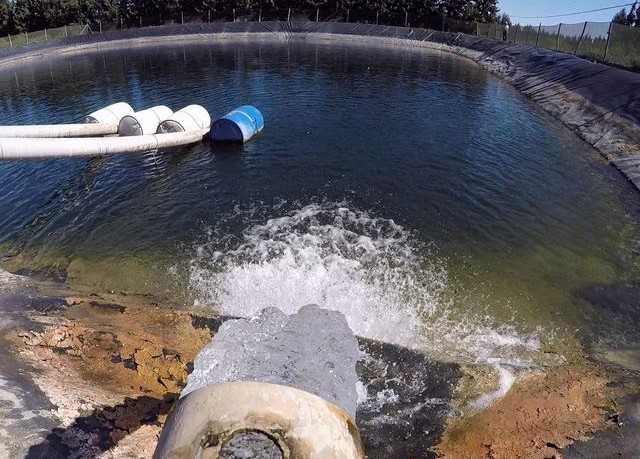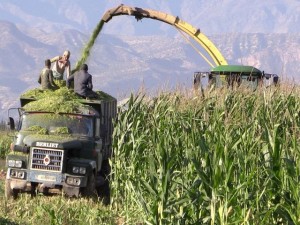The Desert Sun
Steve Elfers, USA TODAY
With climate change and growing population multiplying the stresses on over-tapped water supplies, the economies of several regions of the world are likely to suffer if governments don’t take major steps to use water more efficiently, the World Bank warned in a report released Tuesday.
The World Bank analysis found that countries across Asia, Africa and the Middle East in particular face economic threats as water becomes scarcer in the coming decades.
Groundwater is pumped from wells into a holding reservoir on a citrus farm in Morocco.
“Some regions could see their growth rates decline by as much as 6 percent of GDP by 2050 as a result of water-related losses in agriculture, health, income, and property — sending them into sustained negative growth,” the World Bank said in the report. The water- and climate-related impacts on gross-domestic product will vary, the bank said, depending on different scenarios of water policies.
READ MORE: Climate change is far more than an environmental issue
The bank, which provides financing and technical assistance to developing countries, estimated impacts to GDP of between 6 percent and 14 percent declines in the Middle East. Other worst-case scenarios ranged from a decline of 11.7 percent in the GDP of the Sahel region of Africa to a negative 7 percent in East Asia and a negative 2 percent in Southeast Asia by 2050.
The World Bank said that without efforts to deal more effectively with water scarcity and climate change, the growing strains on water supplies could trigger more migration and spark conflicts. It said that while many economies are vulnerable under business-as-usual scenarios of water use, changes in water policies can help lessen the risks – and could even lead to GDP growth in places.
The report comes after findings by NASA scientists and other researchers that many of the world’s major aquifers have been declining, and that many of the planet’s dry regions have been growing drier while a number of wet regions have been growing wetter in recent years.
READ MORE: Losing snow in a changing climate
Officials with the U.N. refugee agency have predicted that human-caused climate change will become a major driver pushing people to migrate, both within countries and across borders. And experts have cited shrinking water supplies as a contributing factor in the tensions that sparked violent conflicts in Syria, Yemen and other countries.
In the World Economic Forum’s latest Global Risks report, more than 900 experts ranked “water crises” as the No. 1 global risk in terms of impact.
A truck is filled during the corn harvest in the Souss-Massa region of Morocco. more
World Bank President Jim Yong Kim said in a statement that if countries don’t take action to better manage water, “some regions with large populations could be living with long periods of negative economic growth.”
Echoing other researchers, the bank noted that much of the world’s water is used inefficiently in agriculture, industries and cities, and that growing populations and rising incomes are creating “ever-increasing demands for water.” It noted that when water is mismanaged, the poor typically suffer the most.
READ MORE: The Desert Sun’s eight-part climate change series
The World Bank projected that North America and Western Europe will fare relatively well, with the potential for only minuscule economic impacts.
The report, authored by World Bank Lead Economist Richard Damania, calls for countries to prepare through a range of policy changes, such as adjusting water prices to encourage efficiency and making investments in infrastructure and water-saving technologies. The World Bank said there’s no one-size-fits-all solution but that governments can go a long way toward preventing economic damage by boosting efficiency and allocating water to “higher-value uses” as scarcity deepens.
Ian James writes about water and the environment for The Desert Sun. He can be reached by email at ian.james@desertsun.com and on Twitter at @TDSIanJames.









